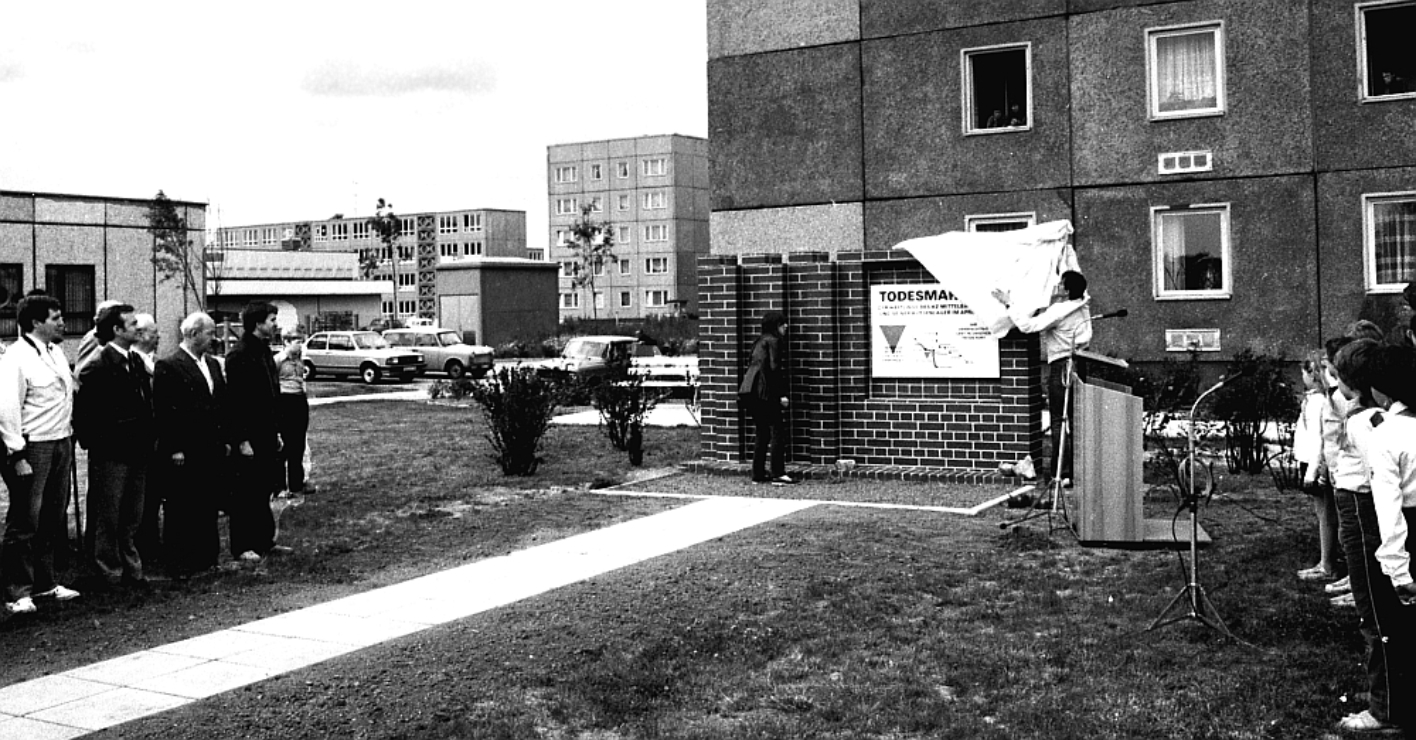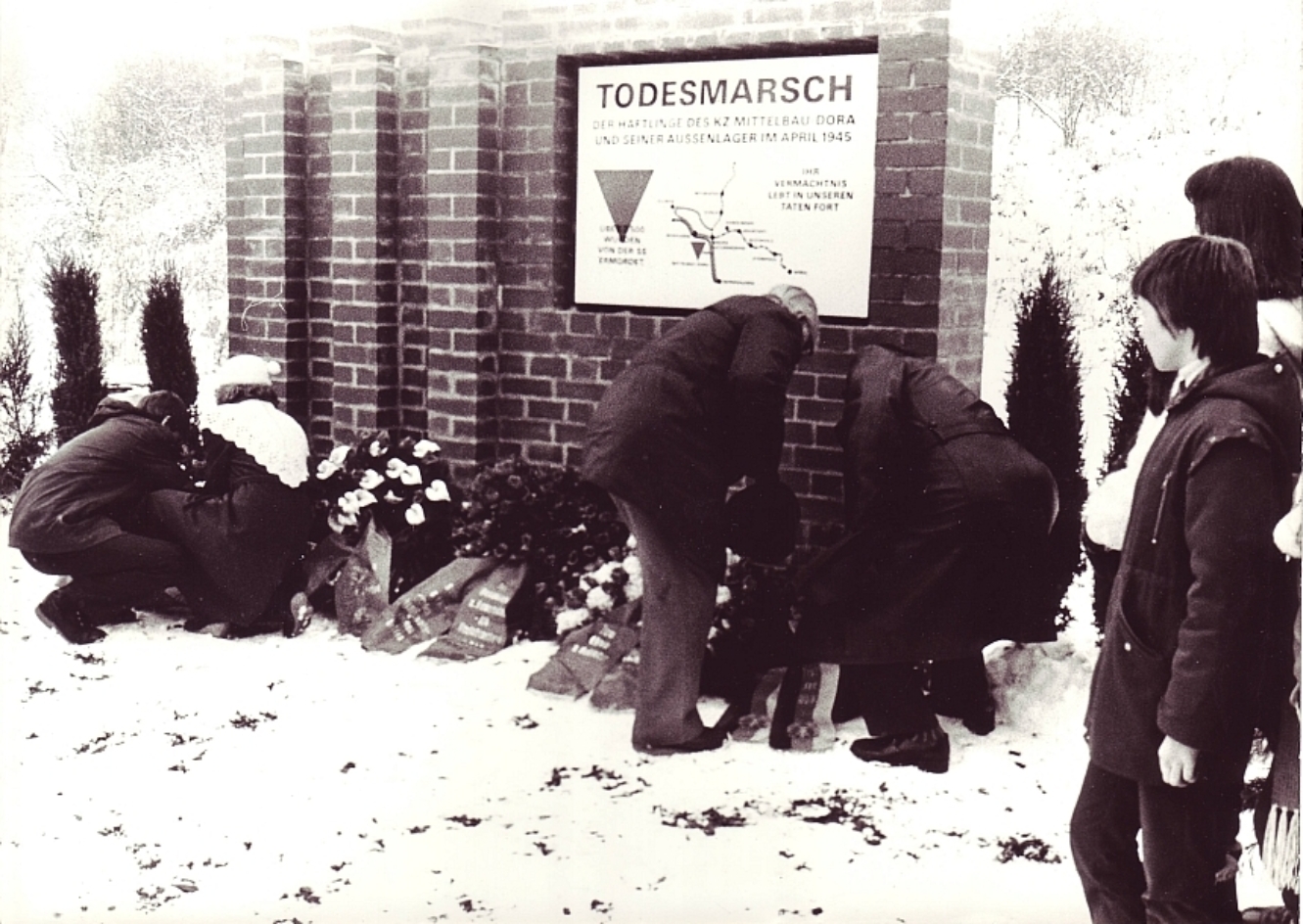

As the US troops approached at the beginning of April 1945, the SS cleared the Mittelbau camps. The inmates were mainly herded on foot or by train towards other concentration camps such as Bergen-Belsen. Thousands of inmates died on the clearance transports and death marches.
The inmates were to be transported to other camps by train or on foot. The guards hurriedly and brutally herded the camp inmates into goods and cattle wagons. By 6 April, several trains carrying thousands of people had left the southern Harz for the Bergen-Belsen concentration camp near Celle, Sachsenhauen north of Berlin and Ravensbrück on the Havel. In addition, many columns of exhausted inmates dragged themselves across the Harz Mountains on foot, driven by the guards. Local residents in the villages witnessed the death marches.
The inmates were completely inadequately clothed and were barely provided with food. Those who collapsed exhausted by the wayside or tried to escape were killed by members of the SS or Wehrmacht. In some cases, the police, Volkssturm, Hitler Youth and even civilians were involved in the killings. According to conservative estimates, up to 10,000 inmates from the Mittelbau concentration camp died during the death marches and clearance transports.
To mark the 35th anniversary of the GDR, the district council had eleven memorial stelae erected in the Nordhausen region to commemorate the death marches from the Mittelbau-Dora concentration camp. On 1 July 1984, Paul Greulich, chairman of the Committee of Anti-Fascist Resistance Fighters, inaugurated the memorial stele on Dr.-Robert-Koch-Straße in Nordhausen-Nord. A large number of similar memorials can be found along the routes of the death marches in Thuringia.
